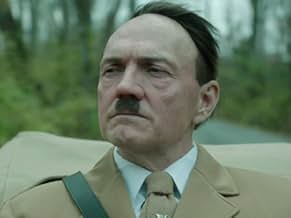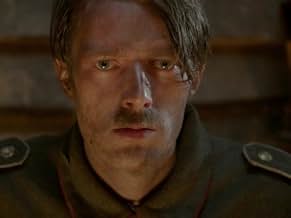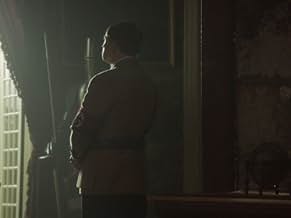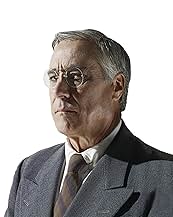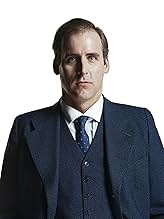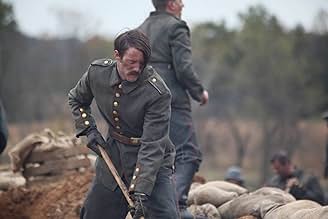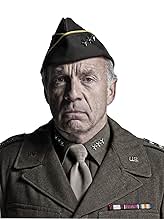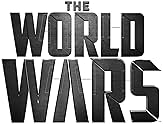IMDb RATING
7.9/10
2.5K
YOUR RATING
A look at both World Wars and what the biggest names in history did during each war and the time in between.A look at both World Wars and what the biggest names in history did during each war and the time in between.A look at both World Wars and what the biggest names in history did during each war and the time in between.
- Nominated for 3 Primetime Emmys
- 1 win & 4 nominations total
Browse episodes
Featured reviews
The History Channel presents a miniseries of six hours on three nights as an overview of the concept that the beginnings of WW I and the events that occurred in that first World War were played out by the same set of characters and in doing so the series presents the backgrounds of each of the major world players in a manner that allows us to see them as individuals rather than historical tropes. Until Amazon makes this available this review is pictured by another series made two years ago with a bit of a different approach. But for those who may be deciding whether or not to catch the current series, hopefully this brief overview will assist.
As the description for the series state, 'The World Wars tells the story of three decades of war told through the eyes of various men who were its key players: Roosevelt, Hitler, Patton, Mussolini, Churchill, Tojo, DeGaulle and MacArthur. The series examines the two wars as one contiguous time line starting in 1914 and concluding in 1945 with these unique individuals coming of age in World War I before ultimately calling the shots in World War II.
Narrated by Jeremy Renner and with comments throughout the series from Colin Powell, Dick Cheney, Leon Panetta, John McCain, John Major, Mario Monti and many historians and correspondents form the US and Britain, the series is a collage of battle scenes (some repetitive, but war is repetitive), but adding the young and old versions of Stalin (Jacopo Rampini /not listed), Mussolini (Nabil Vinas/Jonathan Hartman), MacArthur (Prescott Hathaway/not listed), DeGaulle (Michael Perrie. Jr./Don Meehan), Churchill (Tom Vickers/Ian Beyts), Hitler (Maximillian Klas/not listed ), Lenin (C Conrad Cady), Patton (Matt Dearman/Don Hartman), FDR (Kevin McKillip/not listed), and Tojo (not listed).
The series is directed by John Ealer and written by Chelsea Coates, Zachary Hartmann, Claire Lawton, Alec Michod, Jordan Rosenblum, and David White. No, it isn't all the information about he wars but it is a psychological study of the men who were at the helm of each country involved. It is disturbing but the series does provide insights we should appreciate. Grady Harp, May 14
As the description for the series state, 'The World Wars tells the story of three decades of war told through the eyes of various men who were its key players: Roosevelt, Hitler, Patton, Mussolini, Churchill, Tojo, DeGaulle and MacArthur. The series examines the two wars as one contiguous time line starting in 1914 and concluding in 1945 with these unique individuals coming of age in World War I before ultimately calling the shots in World War II.
Narrated by Jeremy Renner and with comments throughout the series from Colin Powell, Dick Cheney, Leon Panetta, John McCain, John Major, Mario Monti and many historians and correspondents form the US and Britain, the series is a collage of battle scenes (some repetitive, but war is repetitive), but adding the young and old versions of Stalin (Jacopo Rampini /not listed), Mussolini (Nabil Vinas/Jonathan Hartman), MacArthur (Prescott Hathaway/not listed), DeGaulle (Michael Perrie. Jr./Don Meehan), Churchill (Tom Vickers/Ian Beyts), Hitler (Maximillian Klas/not listed ), Lenin (C Conrad Cady), Patton (Matt Dearman/Don Hartman), FDR (Kevin McKillip/not listed), and Tojo (not listed).
The series is directed by John Ealer and written by Chelsea Coates, Zachary Hartmann, Claire Lawton, Alec Michod, Jordan Rosenblum, and David White. No, it isn't all the information about he wars but it is a psychological study of the men who were at the helm of each country involved. It is disturbing but the series does provide insights we should appreciate. Grady Harp, May 14
There are numerous inaccuracies in this re-creation. Two of the most glaring are the singling out of MacArthurs and Patton, while General Eisenhower and Admiral Nimitz aren't even mentioned. The war in the Pacific was primarily a Naval war, and that effort was led by Nimitz. Even MacArthur's retaking of the Philippines was only possible because the Navy and Marines cleared the way across the Pacific. General Eisenhower was the Supreme Allied Commander in Europe, and his contributions were the key to the victory in Europe. Patton was a superb battlefield commender, but lacked the judgment necessary for a position such as that held by Eisenhower. Patton is the kind of guy you want in the lead when you have to "go", but you never want him making the decision whether or not you should "go".
1) They compressed 30 years of history into 4 and a half hours. Things will get left out doing so.
2) This was never intended to be a doctorate-level course in European and American History.
3) It was entertainment! GOOD entertainment. Churchill's speech in Part II actually made me sit up a little straighter and sent chills down my spine.
4) Yes, there were equipment and armament inaccuracies. They also had a little thing called a BUDGET, keep that in mind that it wasn't an infinite one.
5) If you sat down to watch this with a checklist of every single event of World War I and II, you are missing the point. It painted the broad strokes very well. If it can get even ONE person interested in learning more about that era, then the producers did their job as far as I am concerned.
2) This was never intended to be a doctorate-level course in European and American History.
3) It was entertainment! GOOD entertainment. Churchill's speech in Part II actually made me sit up a little straighter and sent chills down my spine.
4) Yes, there were equipment and armament inaccuracies. They also had a little thing called a BUDGET, keep that in mind that it wasn't an infinite one.
5) If you sat down to watch this with a checklist of every single event of World War I and II, you are missing the point. It painted the broad strokes very well. If it can get even ONE person interested in learning more about that era, then the producers did their job as far as I am concerned.
This series can be commended for trying to tackle and combine WWI and WWII. Most historians agree that WWI directly led to WWII. However, this writers constant combining and oversimplification of important facts and events leads to inaccuracies and just straight falsehoods. If you are going to invest several hours watching World War 'history', your time would be much better spent watching "The World at War" series.
The Germans made continental war because they had not fleet. They had not fleet because the treaty of Vesailles did't allow it. Tanks and Airplaine could be built in secrecy in Hangars, which is much more difficult with ships. The negotiations after world war One were still held form a colonial perspective, which led to all the following problems. Borders and Lands were traded by the winning Nations like pieces of cake on a market. Italy and Japan, in World War One on the side of the Alliance were cheated, which led to the following conflicts. The War between Japan and the USA was the first war about Oil. All in all, cheesy acting, but good history telling.
Did you know
- TriviaThe actor who plays General Douglas MacArthur (Daniel Michael Berkey) is the same actor from another History Channel production, The Men Who Built America. He plays JP Morgan's father, Junius.
- GoofsDuring the 1930s when Douglas MacArthur was army Chief of Staff he did not have five stars. That did not happen until December, 1944.
- How many seasons does The World Wars have?Powered by Alexa
Details
- Runtime
- 4h 30m(270 min)
- Color
- Sound mix
- Aspect ratio
- 1.78 : 1
Contribute to this page
Suggest an edit or add missing content


